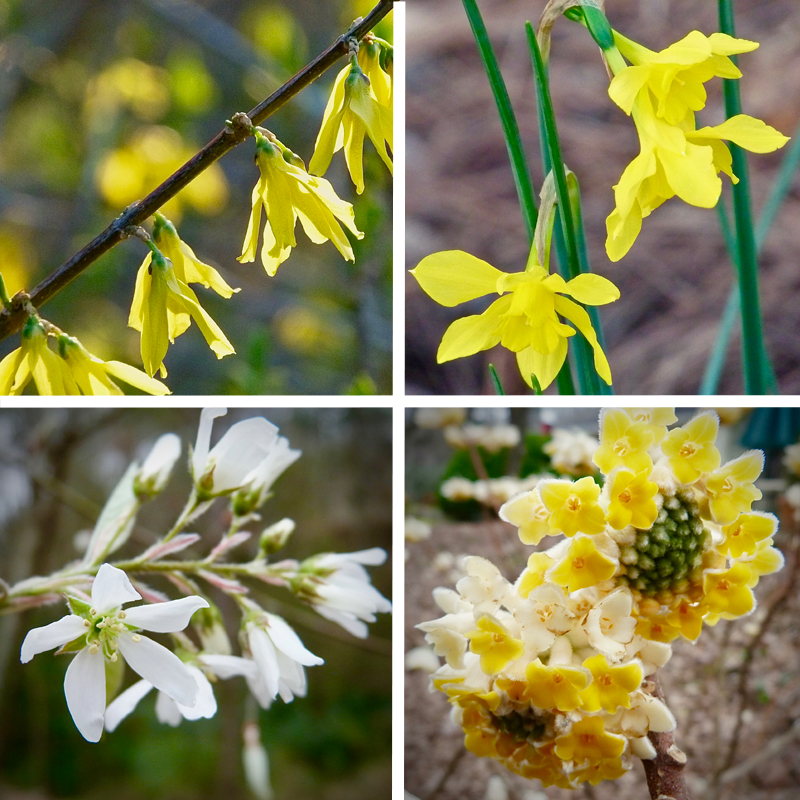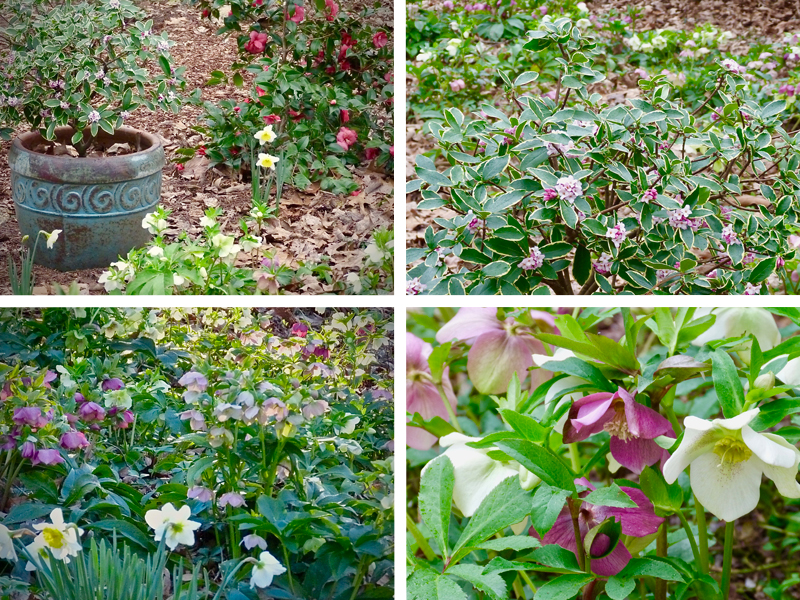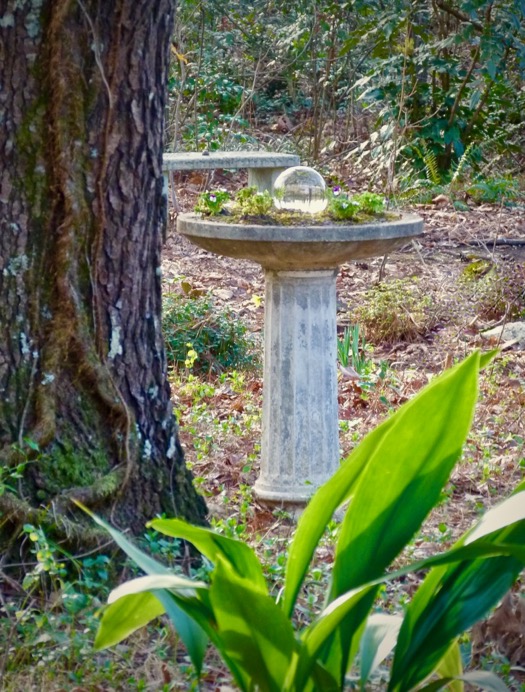Calling It Spring
 Sunday, February 24, 2019 at 1:15PM
Sunday, February 24, 2019 at 1:15PM Spring officially arrives March 20 this year. However, I am calling it spring a month early. Not pre-spring. Spring! I am aware that cruel hard frost could quickly put a damper on my enthusiasm, but I can't deny what is happening in my garden. Young perennial shoots are poking out of the earth, buds are swelling, and flowers are opening. Naturalized daffodils cover portions of the garden. They are a cheerful sign of spring.
Naturalized daffodils cover portions of the garden. They are a cheerful sign of spring.


My gardening juices are flowing like sap rising in a maple tree. Between rain storms (according to my rain gauge, 12.4" in February!) I have been outside cleaning, pruning, and weeding. Some days I feel like I am working inside a cloud because of all the moisture in the air, but the cool temperatures are perfect for gardening.
As I work, I breathe in the rich earthy smells around me and listen to a cacophony of bird song. Birds are beginning to claim rights to various birdhouses on the property. Others birds are finding potential home sites inside shrubs like Chaenomeles, known as flowering quince. Its dense, prickly branches offer good shelter for nests. It is a reliable, low-maintenance shrub with beautiful blooms:

Here are more early blooms in the garden: Clockwise from top left: Forsythia is one of the first shrubs to bloom; The original owner of our home planted these smaller daffodils many years ago, and I find them popping up throughout the garden; Edgeworthia buds are now opening completely to reveal clusters of trumpet shaped flowers; Amelanchier trees, also called Juneberry, have attractive white blossoms that last only a week or so, but are followed by sweet berries that ripen in June.
Clockwise from top left: Forsythia is one of the first shrubs to bloom; The original owner of our home planted these smaller daffodils many years ago, and I find them popping up throughout the garden; Edgeworthia buds are now opening completely to reveal clusters of trumpet shaped flowers; Amelanchier trees, also called Juneberry, have attractive white blossoms that last only a week or so, but are followed by sweet berries that ripen in June.
Hellebores, daffodils, camellia, and a potted variegated winter daphne complement each other in shades of pink and white:
I call these old tree logs, "Stump World." After a tornado in 1990, we rolled several huge sections of a fallen oak tree down into the woods to let them rot. They have been a fascinating study in how nature recycles itself. Today only these two remain. The plants in front are Aucuba japonica.
I always like to finish my garden day by taking a stroll in the woodland garden. As evening approached, I recently snapped a photo of the lengthening shadows:
Then I gathered my tools and began making plans for the next gardening day.



